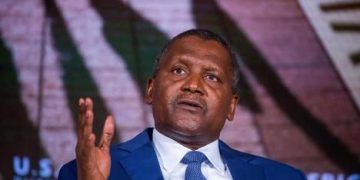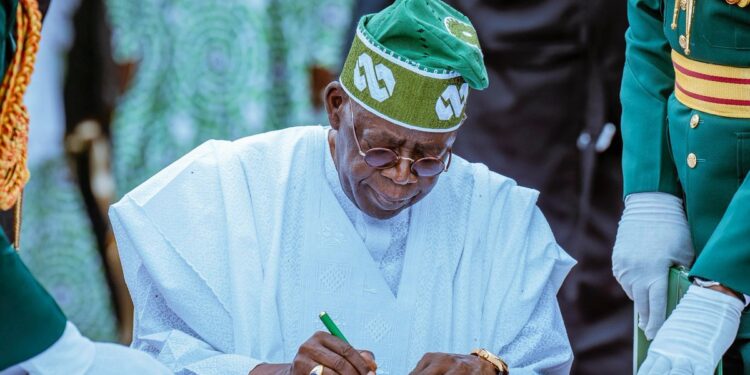President Bola Ahmed Tinubu declared on Thursday that Nigeria’s economy has stabilized under his leadership and that the country is regaining respect on the global stage, thanks to bold reforms aimed at reversing years of mismanagement.
Speaking at the State House in Abuja while receiving His Imperial Majesty, Oba Ghandi Afolabi Oladunni Olaoye (Orumogege III), the Soun of Ogbomosoland, the President described the recent economic challenges as the result of systemic failures.
“Years of neglect and self-deception, fake records, smuggling, and other malpractices denied Nigeria the necessary revenue for progress and development,” he said, pointing to “currency arbitrage, fake trading, and widespread corruption” as additional obstacles.
He commended Nigerians for their resilience and patience, stating:
“With your prayers, patience, perseverance, and great understanding, I’m glad to tell you today that the economy is stabilised. The bleeding has stopped. The haemorrhage is gone; the patient is alive.”
Key Initiatives Highlighted
- NELFUND: Tinubu emphasized the launch of the Nigerian Education Loan Fund (NELFUND), promising that “no student drops out due to poverty,” calling education “the greatest weapon you can give to human beings against poverty.”
- Infrastructure Push: “We have remained aggressive on infrastructure. And it’s just two years,” he remarked, underscoring the administration’s active development agenda.
Commitment to Local Needs in Ogbomoso
Responding to the monarch’s development concerns, Tinubu assured him:
- Ministers in charge of Power, Water Resources, Agriculture, and Works would specifically address Ogbomosoland’s electricity, water supply, and agricultural infrastructure needs.
Oba Olaoye extended praise for the government’s reforms, especially applauding the removal of fuel subsidies, foreign exchange reforms, and NELFUND, which have allowed many students to stay in school.
The monarch also commended the awarding of the contract for the dualisation of the Oyo–Ogbomoso Road, citing its significance for trade access to Northern Nigeria. He appealed for improved power and water supply, an upgrade of the Ogbomoso General Hospital to a Federal Medical Centre, and a research institute for the region’s mango and cashew value chain.
Broader Economic Vision
- Revenue and Borrowing: Tinubu asserted that Nigeria has met its revenue target for the year and was not borrowing from local banks. “Nigeria is not borrowing a dime; we’ve met our revenue targets,” he declared.
- Growth and Fiscal Discipline: Reflecting on broader reforms, Tinubu reminded that after removing fuel and electricity subsidies and devaluing the naira, the fiscal deficit narrowed from 5.4% in 2023 to 3% of GDP in 2024. He described these steps as necessary to avert fiscal collapse and lay a foundation for economic stability.
- Future Growth Goals: In a related remark earlier, he set an ambitious target of 7% annual GDP growth by 2027, aiming to reduce poverty and quadruple the size of the economy by 2030. To sustain momentum, he directed a review of revenue retention and deductions by agencies such as Customs and the NNPC.
- Energy Sector Reforms: As part of his economic revitalization strategy, Tinubu also introduced oil sector tax incentives to boost efficiency. Operators can earn tax credits up to 20% of their annual obligations for verified cost-cutting efforts.
Summary Table: Tinubu’s Key Messages
| Area | Key Highlights |
|---|---|
| Economic Stabilization | “Bleeding has stopped… the patient is alive.” |
| Education | Launch of NELFUND to prevent student dropouts due to poverty. |
| Infrastructure | Aggressive development over two years, including road projects. |
| Local Development | Targeted support for Ogbomosoland’s power, water, health, and agriculture. |
| Fiscal Performance | Revenue targets met; not borrowing from local banks. |
| Economic Reforms | Narrowed deficit; ongoing growth strategy with a 7% target by 2027. |
| Oil Sector Efficiency | 20% tax incentive for cost-saving operators in oil fields. |

























































